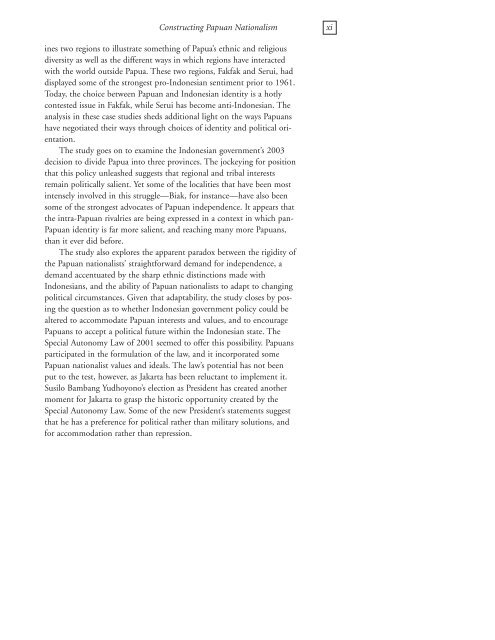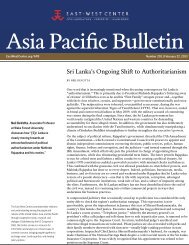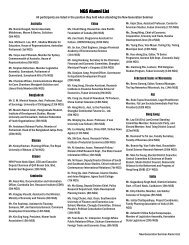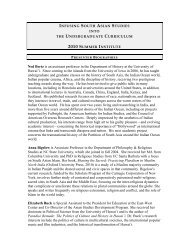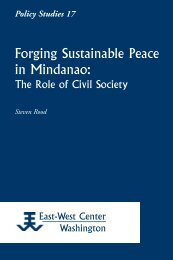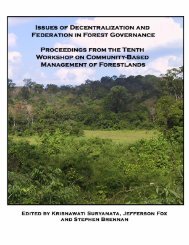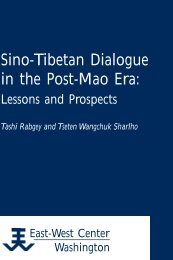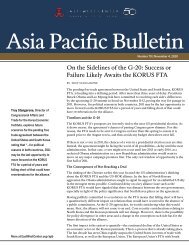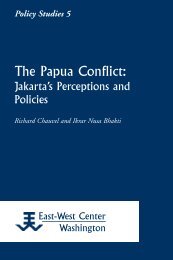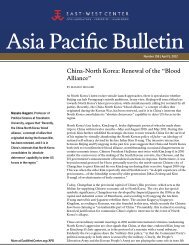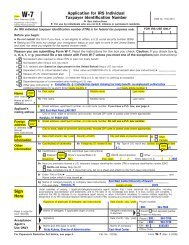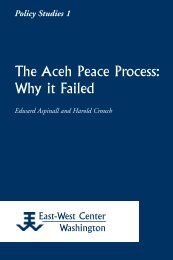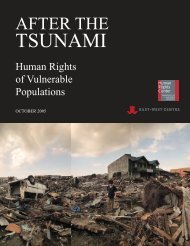Constructing Papuan Nationalism: History, Ethnicity ... - ScholarSpace
Constructing Papuan Nationalism: History, Ethnicity ... - ScholarSpace
Constructing Papuan Nationalism: History, Ethnicity ... - ScholarSpace
- No tags were found...
You also want an ePaper? Increase the reach of your titles
YUMPU automatically turns print PDFs into web optimized ePapers that Google loves.
<strong>Constructing</strong> <strong>Papuan</strong> <strong>Nationalism</strong>xiines two regions to illustrate something of Papua’s ethnic and religiousdiversity as well as the different ways in which regions have interactedwith the world outside Papua. These two regions, Fakfak and Serui, haddisplayed some of the strongest pro-Indonesian sentiment prior to 1961.Today, the choice between <strong>Papuan</strong> and Indonesian identity is a hotlycontested issue in Fakfak, while Serui has become anti-Indonesian. Theanalysis in these case studies sheds additional light on the ways <strong>Papuan</strong>shave negotiated their ways through choices of identity and political orientation.The study goes on to examine the Indonesian government’s 2003decision to divide Papua into three provinces. The jockeying for positionthat this policy unleashed suggests that regional and tribal interestsremain politically salient. Yet some of the localities that have been mostintensely involved in this struggle—Biak, for instance—have also beensome of the strongest advocates of <strong>Papuan</strong> independence. It appears thatthe intra-<strong>Papuan</strong> rivalries are being expressed in a context in which pan-<strong>Papuan</strong> identity is far more salient, and reaching many more <strong>Papuan</strong>s,than it ever did before.The study also explores the apparent paradox between the rigidity ofthe <strong>Papuan</strong> nationalists’ straightforward demand for independence, ademand accentuated by the sharp ethnic distinctions made withIndonesians, and the ability of <strong>Papuan</strong> nationalists to adapt to changingpolitical circumstances. Given that adaptability, the study closes by posingthe question as to whether Indonesian government policy could bealtered to accommodate <strong>Papuan</strong> interests and values, and to encourage<strong>Papuan</strong>s to accept a political future within the Indonesian state. TheSpecial Autonomy Law of 2001 seemed to offer this possibility. <strong>Papuan</strong>sparticipated in the formulation of the law, and it incorporated some<strong>Papuan</strong> nationalist values and ideals. The law’s potential has not beenput to the test, however, as Jakarta has been reluctant to implement it.Susilo Bambang Yudhoyono’s election as President has created anothermoment for Jakarta to grasp the historic opportunity created by theSpecial Autonomy Law. Some of the new President’s statements suggestthat he has a preference for political rather than military solutions, andfor accommodation rather than repression.


